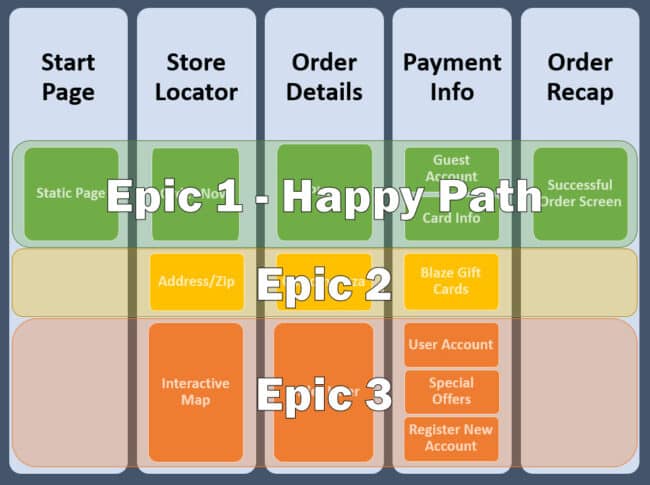As the healthcare industry shifts from a fee-for-service (FFS) model to value-based care (VBC), provider groups face significant operational and cultural changes. This transition, aimed at improving patient outcomes while reducing costs, requires more than just policy adjustments. It is a paradigm shift that disrupts standard processes, ways of thinking, and organizational culture. Applying change management techniques as one of your strategies to implement value-based care will ensure leadership and the workforce across the industry are informed, educated, and even champions of the change.
Understanding the Shift from Fee-For-Service to Value-Based Care
The traditional fee-for-service model incentivizes volume over value, rewarding providers for the number of services rendered rather than the quality of care provided.
Conversely, value-based care emphasizes patient outcomes and cost-efficiency, with financial incentives aligned to these goals. It employs new workflows, greater collaboration among patients, providers, and administrative staff, even greater reliance on data, and an entirely new way of thinking about reimbursement. It is a significant shift that requires healthcare organizations to rethink care delivery processes, financial management, and organizational behaviors and attitudes. Effective change management is an essential strategy to support value-based care transformations successfully.
What Is Change Management?
Change management is the process of applying a systematic approach designed to prepare individuals for an upcoming change. It has been proven to increase success rates significantly. In fact, project managers who use effective change management techniques have a higher success rate than those who do not. According to a 2023 Research Hub study, only 13%, or about 1 in 8, of those with poor change management programs met or exceeded objectives.
What Are the Benefits of Change Management as a Value-Based Care Implementation Strategy?
Engaging stakeholders reduces resistance throughout the transition to value-based care.
Effective change management begins with engaging all stakeholders—clinicians, administrative staff, and patients. Transparent communication about the reasons for the shift to VBC, its benefits, and the anticipated challenges is critical. Engaging stakeholders helps build buy-in and reduces resistance. It is essential to involve clinicians and care teams in the decision-making process, as their support and active participation are vital for the success of VBC initiatives.
Training and education builds the new skills and knowledge staff will need to be successful working within a value-based care model.
Transitioning to VBC requires new skills and knowledge. Comprehensive training programs are necessary to educate staff about VBC principles, new care models, and the use of data analytics to track performance and health outcomes. Training should also cover changes in workflows, billing practices, and patient engagement strategies. Investing in continuous education ensures staff are well-prepared and confident in their roles, reduces anxiety, and fosters a culture of continuous improvement.
Improved communication among and across teams facilitates success as care delivery is redesigned.
Change management supports the redesign of care delivery processes to align with VBC goals. This includes implementing care coordination, preventive care, and chronic disease management programs. These initiatives often require cross-functional teams and integrated care approaches. Change management ensures these new processes are effectively communicated, adopted, and refined based on feedback and performance data.
Inclusion and knowledge increases the adoption rate for new technologies.
The transition to value-based care relies heavily on data and technology. Robust change management facilitates the adoption of new technologies like electronic health record (EHR) software, population health management systems, and data analytics platforms. Ensuring staff are trained and comfortable with these tools is crucial for leveraging data to improve patient care and achieve VBC targets.
Monitoring and feedback elevates overall sustained success.
Ongoing monitoring and feedback are essential components of change management. Regularly tracking progress toward VBC goals and soliciting feedback from staff and patients helps identify areas for improvement and successes to be celebrated. This iterative process fosters a culture of adaptability and responsiveness, which is crucial for sustained success in VBC.
Building a Culture of Value
Ultimately, the transition to value-based care is as much about cultural change as it is about operational change. Change management helps cultivate a culture that prioritizes patient outcomes, teamwork, and continuous improvement. By embedding these values into the organizational ethos, provider groups can sustain the transformation and achieve long-term success.
In summary, effective change management is critical for provider groups transitioning from fee-for-service to value-based-care. By engaging stakeholders, providing comprehensive training, redesigning care delivery, leveraging technology, and fostering a culture of value, change management ensures a smooth and successful transition. As the healthcare landscape continues to evolve, mastering the art of change management will be key to thriving in a value-based care environment.
Implementing Value-Based Care Strategies
Ready to take the next step in your transition to value-based care? InfoWorks value-based care consulting service is uniquely designed to help organizations through this transformation. We specialize in the complex data strategy, engineering, and architecture required for predictive healthcare models. In combination with our technology assessment and implementation and change management expertise, we can help build a value-based care program that works for patients and healthcare organizations.





